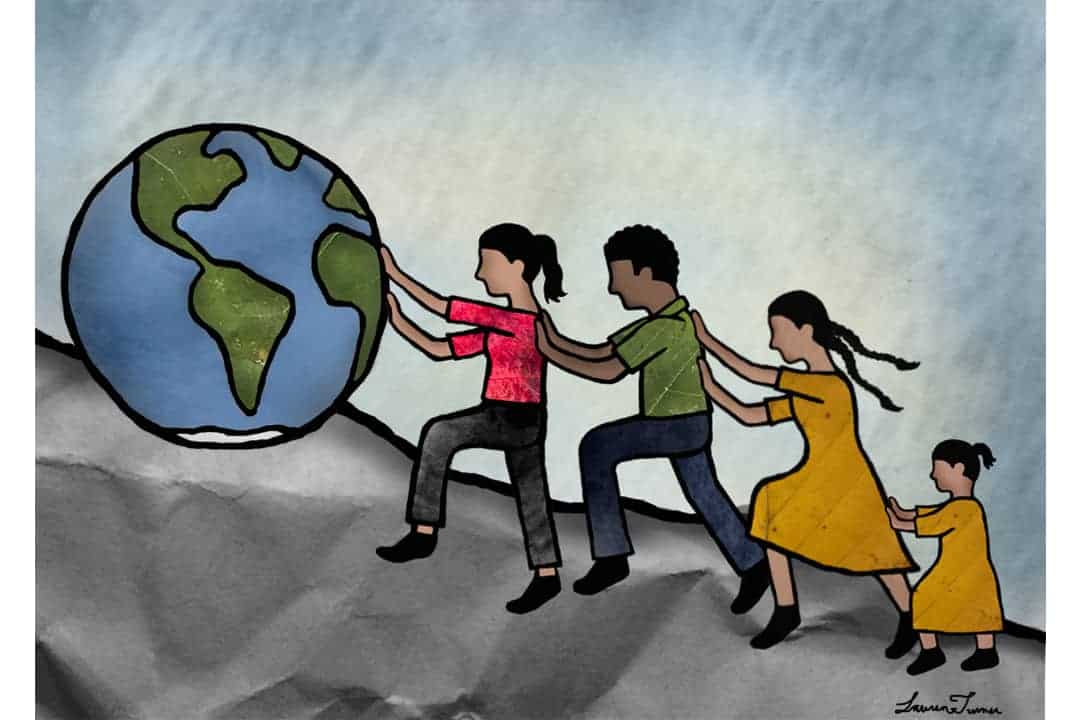If you’ve ever taken a high school science class or, indeed, even glanced at a climate strike flyer, you might have become a little afraid that the world is ending. The truth is, it’s easy to both be overwhelmed with trepidation for such a real and current catastrophe and — on the flip side — completely ignore it!
Dr. Stephanie Collier, the director of education in geriatric psychiatry at McLean Hospital in Massachusetts, contends that climate anxiety is not a ‘mental illness,’ but instead is “anxiety rooted in uncertainty about the future.” This fear of the future — does it sound familiar? It seems that in such fear-inducing, changing times, many young folks are experiencing premature existential crises and spiralling about the state of the world.
Indeed, existential crises and climate anxiety are linked. Existential crises are common in transitional phases, such as moving to university, a break up, or death of a loved one, when the topic of death becomes all consuming. Climate anxiety is a type of existential crisis provoked by a more specific challenge faced by humanity: the idea that the world is ending and it’s our fault. Whether it be climate anxiety or another type of existential crisis, it makes sense why some are so inundated with the end.
In an interview with The Varsity, Erin Mackey, divestment organizer at Climate Justice UofT, elaborated on fear of the future and climate anxiety. Mackey suggested that “climate anxiety has a lot to do with wanting a livable future” and is related to the thought that “we are [living] in a moment where the future is really uncertain.”
She added, “my relationship to climate anxiety is a little bit complicated, because I’ve definitely experienced it and I definitely think it can be a motivating factor, but it is also a very debilitating feeling.”
Sometimes climate crisis and existentialism can be too big and complex to fathom, and so we elect to ignore them, which can be even more detrimental to our well-being. The decline of the Earth often isn’t clearly visible in our immediate day-to-day lives, and thus, such a large-scale, foreboding event might be inconceivable to the average student when we already have to stress about midterms and meal prepping.
Denial of such topics is on the flip side of climate anxiety; it is a defense mechanism that stops you from addressing a problem or making a change. Author Ron Ashkenas contends that denial is “one of the most common defense mechanisms that we use to cope with difficult situations.”
But in terms of managing climate anxiety in a productive way, Mackey revealed some tips on the matter: “I’ve tried to focus more on what we can do… We [do] have control over it, and there are tangible changes and things that we can do right now to help mitigate it, whether that’s individual or structural.”
As she entered university and became involved in climate activism, Mackey says that she “gained a better understanding of the power structures and the systems at play… With divestment and divestment organizing, it’s focusing on one particular pillar, and being able to focus on that and knock that down.”
Mackey said that a professor once told her, “I wake up every day and I say ‘how can I ‘F’ over the oil industry,’” and that has helped her a lot in believing that she can tackle the root issue of climate crisis and mitigating the anxiety that comes from “pessimism” and the “tendency to feel like the climate crisis is too big to tackle.”
Finally, Mackey added that she is ultimately hopeful: “There’s been a big shift recently in the climate movement from this idea of climate ‘doomerism’ to [the question of] ‘what can a future look like?’… We have this opportunity to build a world that we want to see… [This idea] is much more powerful in terms of motivating people to take action and get excited about the climate movement.”
If you are experiencing distress that is in any way related to the climate or the future, it might make you feel less fearful to know that this is an experience felt by many young people across the country. It can feel very lonely and upsetting to consider that the climate crisis is real and it’s happening right now — you might even be in denial because such thoughts are so troubling.
However, just like with any form of anxiety, it’s crucial to take small steps toward balance and peace. This might look like eating less meat or removing fast fashion from your lifestyle, as Mackey has done, or even bringing the topic up with a friend. Sharing experiences with others, and learning that you’re not alone in your anxieties, is the first step in moving toward a positive change. In the case of the climate, we need lots of small positive changes to create a real one.


